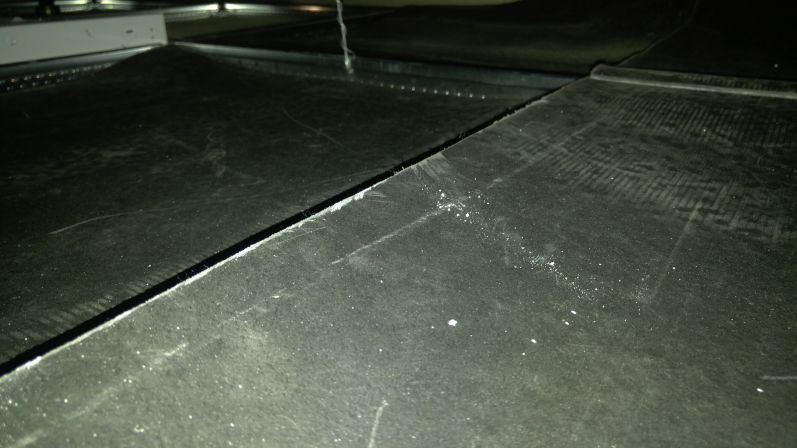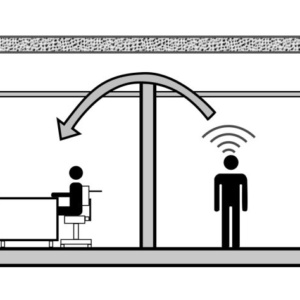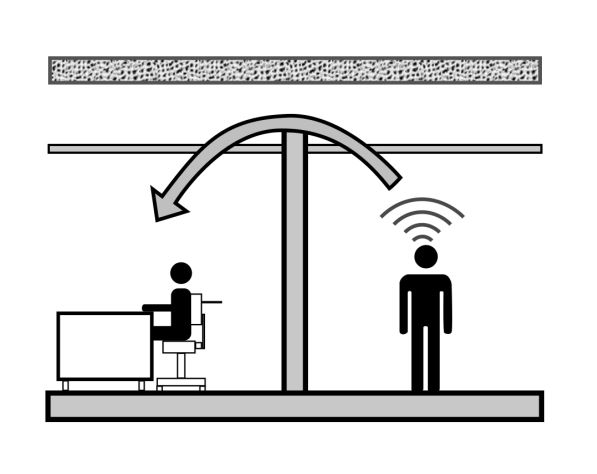One of the most common complaints we see in office and educational settings is flanking noise through open plenums between adjacent spaces. This is often problematic when walls between offices don’t go to deck allowing sound to pass directly through the Acoustic Ceiling Tile and allowing clearly audible conversations between neighbors. (Note: ACT are not designed to block sound but rather absorb echo in a large reverberant space). A common solution we see attempted is laying fiberglass batting on top of the ceiling tiles. However, this is strongly discouraged because batting is not STC rated and oftentimes maintenance staff struggles to keep it in place when accessing above the ACT.
Acoustic Ceiling Tile Noise Treatment
A university in Florida came to Commercial Acoustics to address noise from their student government area spilling over into staff offices. Our recommendation? A new polymer based tile that installs above existing ACT to prevent the flanking path. Commercial Acoustics’ Drop Ceiling Noise Blokker is available in our Florida and North Carolina warehouses and shipped to the university campus during school break for installation. Installation is simple, taking just a few hours for just over 300 tiles.
Drop Ceiling Soundproofing vs. Sound Masking Systems
A cost trade-off should performed when considering using Drop Ceiling Noise Blokker or other blocking products on top of an ACT grid, versus masking the noise with a Commercial Sound Masking System.
Generally the soundproofing of the ceiling is limited by 2 factors; the ability to seal the edges around each ceiling tile, and to prevent flanking through the air return system, whether a plenum or ducted return. The drop-ceiling backer should be installed carefully to ensure that there are not gaps around each tile. If there is a significant portion of the ceiling (>10%) covered by lighting fixtures and diffusers, then there is likely to be too much flanking to allow a sufficient application for the ceiling. In these cases, Sound Masking should be strongly considered. A Sound Masking system adds a white ambient background noise into a space to prevent employees and neighbors from hearing unwanted noise from an adjacent space.




